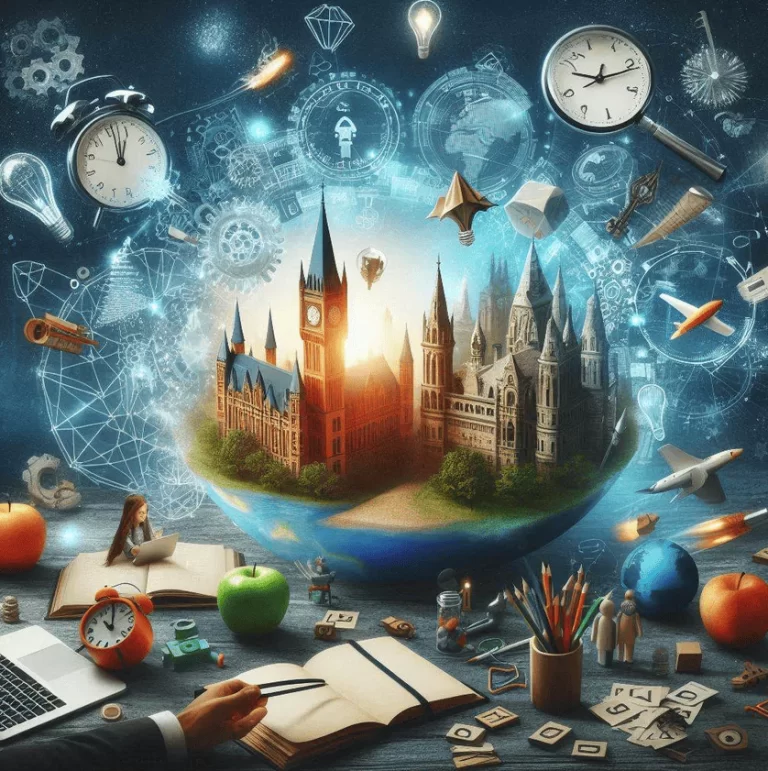
Lifelong learning In a world that is evolving at an unprecedented pace, the concept of lifelong learning has emerged as a crucial factor for personal and professional success. Technology, globalization, and shifting economic landscapes have fundamentally altered the nature of work, education, and society. In this context, the ability to continuously acquire new skills and knowledge has become essential for adapting to change and staying competitive. Whether one is entering the workforce, transitioning careers, or seeking to remain relevant in a rapidly changing industry, lifelong learning has become a non-negotiable strategy for thriving in the modern world.
The Changing Landscape of Work and Education Lifelong Learning
Historically, education was seen as a finite process, something that occurred in the early stages of life, culminating in a degree or certification. The belief was that once an individual had completed their formal education, they were equipped with all the knowledge and skills necessary for a successful career. However, this mindset is increasingly being challenged by the dynamic and ever-evolving nature of the modern job market.
Technology has had a profound effect on the workplace. The rise of automation, artificial intelligence (AI), and machine learning means that many traditional jobs are being replaced or transformed. In industries like manufacturing, retail, and customer service, tasks that were once performed by humans are now handled by machines. While this has led to significant improvements in efficiency and productivity, it has also caused massive disruptions to the labor force, leaving many workers facing the threat of obsolescence.
At the same time, new industries are emerging, many of which did not exist a few decades ago. The advent of fields such as data science, digital marketing, cybersecurity, and artificial intelligence has created a wealth of opportunities. However, these fields often require specialized knowledge and skills that are not typically part of traditional education systems. As a result, workers must constantly update their skills and adapt to new technologies in order to remain competitive.
This shift in the workplace landscape underscores the need for lifelong learning. The skills that were once sufficient for a long-term career are no longer enough to sustain success in the modern economy. To thrive, individuals must adopt a mindset of continuous education, ensuring that they can keep pace with the rapid changes occurring in the world.
The Benefits of Lifelong Learning
1. Adaptability in the Face of Change
One of the most significant advantages of lifelong learning is its ability to foster adaptability. In a world where the only constant is change, the capacity to adapt is crucial for survival. As industries evolve and new technologies emerge, workers must be able to acquire new skills quickly and efficiently. Those who commit to lifelong learning are better positioned to adapt to shifts in the job market, pivoting to new roles or industries with relative ease.
For example, professionals in the tech industry often need to learn new programming languages, tools, and frameworks as technology advances. Similarly, those in marketing must stay up-to-date with the latest trends in digital advertising, social media, and consumer behavior. By embracing lifelong learning, individuals can ensure that they remain relevant and valuable in their fields, even as the landscape changes around them.
2. Enhanced Career Opportunities
In addition to providing adaptability, lifelong learning can significantly enhance career opportunities. As the demand for specialized skills grows, individuals who commit to ongoing education are more likely to be considered for promotions, new roles, or leadership positions. Employers increasingly value employees who demonstrate a commitment to growth and development, as these individuals tend to be more proactive, innovative, and capable of tackling complex challenges.
Moreover, lifelong learning can open doors to entirely new career paths. For instance, someone with a background in finance may decide to pursue a certification in data analytics, allowing them to transition into a tech-focused role. Alternatively, an individual with a background in traditional marketing may choose to study digital marketing or search engine optimization (SEO) to remain competitive in the rapidly evolving advertising landscape. By continuously learning and acquiring new skills, individuals can expand their career options and increase their earning potential.
3. Personal Growth and Fulfillment
Beyond the professional advantages, lifelong learning also contributes to personal growth and fulfillment. The process of learning new things can be incredibly rewarding, offering individuals a sense of accomplishment and a broader understanding of the world. Whether it’s mastering a new language, picking up a musical instrument, or delving into a subject of personal interest, learning has the power to enrich one’s life in meaningful ways.
Furthermore, lifelong learning can improve cognitive function and mental agility. Studies have shown that engaging in intellectually stimulating activities, such as learning a new skill or subject, can help keep the brain sharp and reduce the risk of cognitive decline in older age. For those seeking personal enrichment, the pursuit of knowledge can bring a sense of purpose and joy that extends well beyond the confines of a job or career.
The Role of Technology in Lifelong Learning
As technology continues to shape the world, it has also revolutionized the way we learn. The rise of online courses, digital resources, and e-learning platforms has made education more accessible than ever before. Individuals no longer have to attend traditional universities or enroll in formal educational programs to gain new knowledge. With just a few clicks, anyone can access a wealth of information on virtually any subject.
Platforms like Coursera, edX, and Udemy offer courses taught by experts in fields ranging from computer science to business management, providing learners with high-quality education at their own pace. Additionally, YouTube and podcasts have emerged as powerful learning tools, offering free, easily accessible content on a wide variety of topics.
The proliferation of mobile technology has further facilitated lifelong learning. Smartphones and tablets allow individuals to learn on-the-go, whether they’re commuting, waiting in line, or relaxing at home. Mobile apps like Duolingo and Khan Academy have made it possible for people to learn new languages, improve their math skills, or explore complex scientific concepts at their convenience.
By leveraging the power of technology, lifelong learning has become more flexible and personalized. Learners can tailor their educational experiences to fit their schedules, interests, and goals, making it easier than ever to stay engaged in the learning process.
Overcoming Barriers to Lifelong Learning
Despite the many benefits of lifelong learning, there are several barriers that can prevent individuals from fully engaging in continuous education. One of the most significant challenges is the lack of time. Many people juggle demanding jobs, family responsibilities, and other commitments, leaving little room for additional learning. However, with the rise of flexible, online learning options, it is becoming increasingly feasible for individuals to learn in small, manageable increments.
Another barrier to lifelong learning is the cost. While many online courses are affordable or even free, some fields require costly certifications or degrees that may be out of reach for many individuals. Scholarships, grants, and employer-sponsored training programs can help alleviate this financial burden, but access to these resources is not always equitable.
Finally, some individuals may lack the motivation or self-discipline to pursue lifelong learning. Without a structured environment or external pressure, it can be difficult to stay committed to continuous education. However, by setting clear learning goals, finding a supportive community, or seeking out mentorship, individuals can overcome this obstacle and stay motivated to learn.
The Future of Lifelong Learning
Looking ahead, the role of lifelong learning will only become more pronounced. As automation and AI continue to reshape industries, the demand for highly skilled workers will increase. To stay competitive, individuals will need to continually update their skills and adapt to new technologies.
In the future, lifelong learning may become the norm rather than the exception. Educational institutions and employers will likely place greater emphasis on the importance of continuous education, offering more flexible learning options and creating environments that support ongoing development. Additionally, advancements in technology, such as virtual reality (VR) and augmented reality (AR), may revolutionize the way we learn, providing immersive, interactive experiences that enhance understanding and retention.
Ultimately, the future of work will be characterized by constant change, and lifelong learning will be the key to navigating that change successfully. Those who embrace the concept of continuous education will be better equipped to thrive in an increasingly complex, technology-driven world.
Conclusion
In a world that is constantly evolving, the need for lifelong learning has never been greater. As technology continues to reshape the workforce and the global economy, the ability to acquire new skills and knowledge will be essential for personal and professional success. By committing to lifelong learning, individuals can ensure that they remain adaptable, competitive, and fulfilled in an ever-changing world. With the help of technology, access to education has become more flexible and accessible than ever before, enabling individuals to learn at their own pace and on their own terms.
The journey of learning does not end with graduation or the attainment of a degree. It is a lifelong pursuit that can enrich every aspect of our lives—personally, professionally, and intellectually. In the face of constant change, lifelong learning offers a pathway to growth, resilience, and success in a rapidly transforming world.



